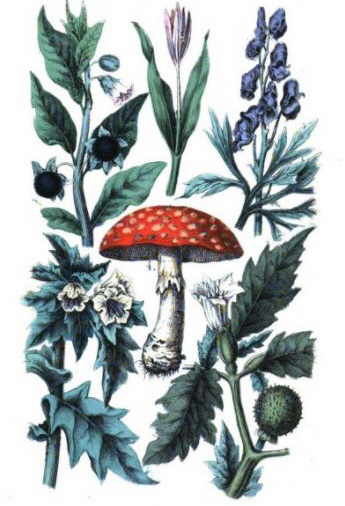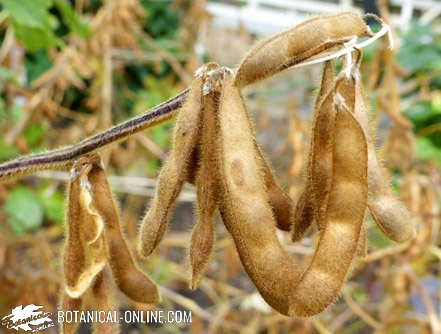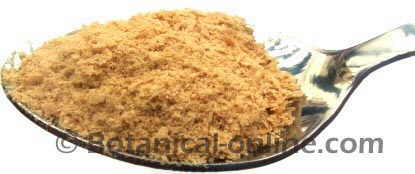Contents
Toxic effects of aflatoxins for the body
Aflatoxins are toxic substances found in food. They are produced by fungi or molds that grow in these foods during processing and storage, called toxigenic fungi or molds. They produce mycotoxins, such as aflatoxins.
Aspergillus appear in peanuts producing aflatoxins.
Why are aflatoxins toxic?
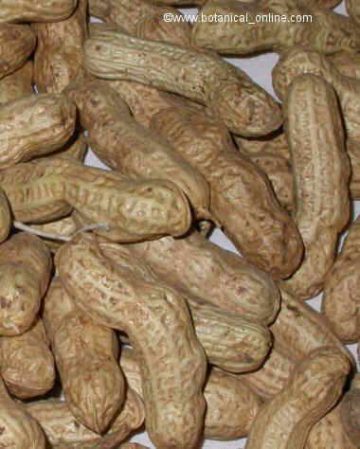
Aflatoxins are very small non-protein substances, much smaller than the toxins produced by bacteria. Therefore, they are difficult to detect in foods with conventional analyzes, which require special crops where bacteria cannot develop.
They are also such small and characteristic compounds that are very difficult to detect by our immune system.
All this makes us more vulnerable to its harmful effects.
Toxicity of aflatoxins
The toxicity of aflatoxins can affect both humans and animals fed with foods that contain these toxins. The main damages they produce are:
- Infectious diseases: aflatoxins suppress the body’s immunity by interfering with the production of antibodies and increasing the risk of infections. This is the main danger of these substances.
- Liver diseases: in high doses or in the long term, aflatoxins can cause liver damage, cirrhosis and liver cancer. People with hepatitis or liver disease should avoid foods with more aflatoxins.
Dangerous toxicity of aflatoxins
It is recommended that people with liver diseases avoid taking foods that usually have higher levels of aflatoxins, such as peanuts, pistachios and Brazil nuts.
Types of aflatoxin poisoning
Aflatoxin poisoning can be acute or chronic.
What is acute aflatoxin poisoning?
Acute poisoning or acute aflatoxicosis occurs after eating foods that have medium or very high levels of aflatoxins.
The main symptoms of intoxication are:
- Hemorrhages
- Pain in the side
- Abdominal pain
- Swollen belly
- Liver damage
- Edema
- Food malabsorption
- Even death
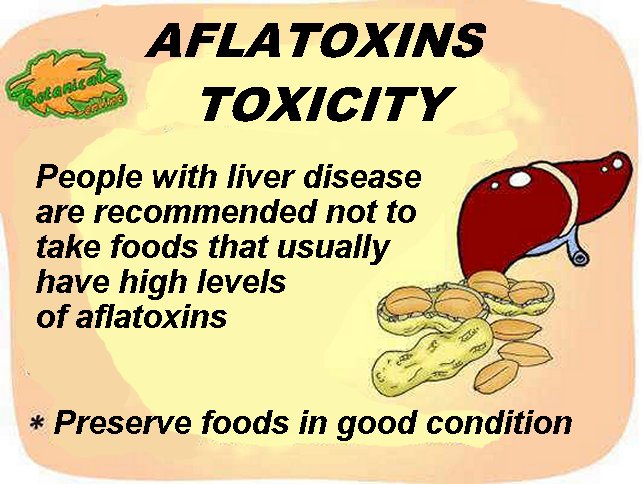
What is chronic aflatoxin poisoning?
Chronic aflatoxin poisoning or chronic aflatoxicosis is caused by frequent consumption of foods with low or very low levels of aflatoxins.
The symptoms of intoxication are difficult to determine. Among them, there seems to be:
- A deterioration of intestinal function in food absorption
- Metabolism
- Growth retardation in children, etc.
The most toxic symptoms from continued exposure to aflatoxins occur in vulnerable people, with hepatitis, cirrhosis or liver problems. In these cases, aflatoxins can be potentially toxic and multiply the risk of liver cancer.
For this reason, people with liver diseases should avoid ingestion of those who usually have higher levels of aflatoxins, such as peanuts , peanut butter, pistachios, Brazil nuts and cheeses.
It is also recommended to maximize hygiene in food preservation so that aflatoxin levels do not increase in food during storage.
![]() More information on aflatoxins
More information on aflatoxins


